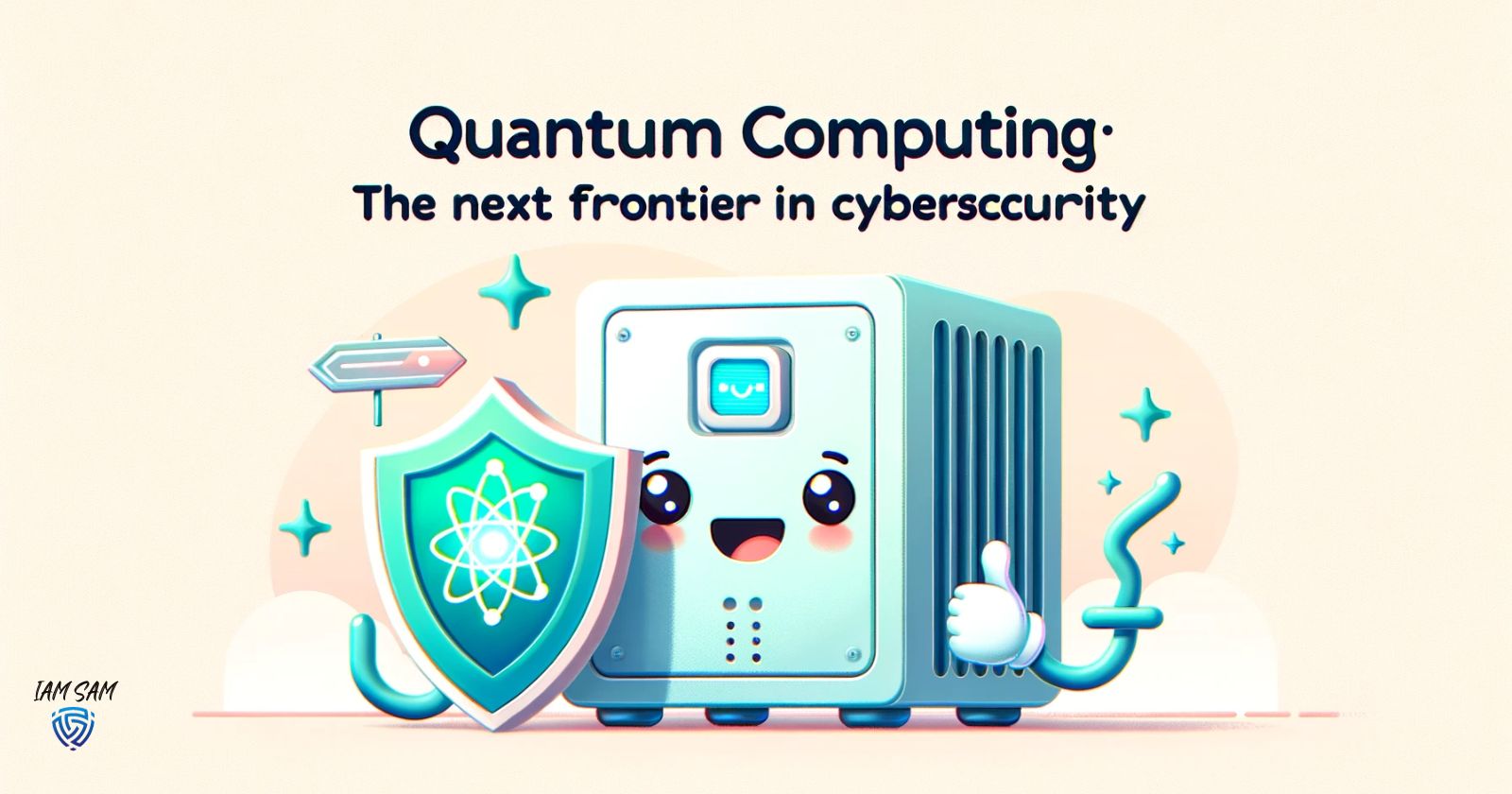Quantum Computing: The Next Frontier in Cybersecurity
Ever heard of quantum computing? If you’re scratching your head, don’t worry—you’re not alone. But here’s the deal: quantum computing is innovative, fast, and a game-changer like the Tony Stark of the computing world. And just like Iron Man has his vulnerabilities (looking at you, Thanos), quantum computing poses severe threats to our digital universe. So, please grab a cup of coffee, and let’s dive into why quantum computing is the next frontier in cybersecurity. What is Quantum Computing? Let’s break it down. Traditional computing uses bits, either a 0 or a 1. Quantum computing, on the other hand, uses quantum bits or qubits. These qubits can exist in multiple states at once, thanks to the principles of quantum mechanics. Imagine being in two places simultaneously; that’s what qubits can do! This ability to be in multiple states allows quantum computers to perform complex calculations at speeds that would make Usain Bolt look slow. But here’s the kicker: this isn’t just some sci-fi fantasy. Companies like IBM and Google are already making strides in the field. They’re not just building quantum computers but also exploring how these machines can solve real-world problems—from drug discovery to climate modelling.
The Quantum Threat: A Pandora’s Box for Cybersecurity
Alright, we’ve established that quantum computing is like the superhero of the tech world. But every superhero has a dark side, and for quantum computing, that’s its ability to crack encryption algorithms like they are kindergarten puzzles. Breaking the Unbreakable Do you know how we rely on encryption to keep our data safe? Well, algorithms like RSA and AES might be robust against classical computers. Still, they’re sitting ducks regarding quantum attacks. Imagine having a state-of-the-art security system at home, only to discover that a quantum-powered lock-picker can bypass it in seconds. Scary, right?
The Real-World Implications
This isn’t just a theoretical threat; it’s a ticking time bomb. Financial institutions, healthcare systems, and even national security could be compromised. We’re talking about the potential for data breaches on an unprecedented scale. And let’s remember data is the new oil. If someone can tap into that reservoir, they’d have the power to manipulate markets, disrupt services, and destabilize governments.
The Industry’s Response
The good news? The tech industry isn’t sitting idle. Companies are already investing in post-quantum cryptography, which aims to develop encryption methods even quantum computers can’t crack. It’s like building a fortress that’s impervious to quantum attacks.
Fighting Back: The Dawn of Quantum-Resistant Algorithms
So, we’ve talked about the quantum bogeyman, but let’s remember we’ve got some tricks up our sleeves, too. The cybersecurity community is like the Avengers assembling to fight the quantum Thanos.
Quantum-Resistant Algorithms: The New Heroes
Researchers are hard at work developing what’s known as quantum-resistant algorithms. These are cryptographic methods designed to withstand the brute force of quantum computing. Think of it as creating a lock that changes its combination whenever someone tries to pick it. It’s not just about making it harder to crack; it’s about making it virtually impossible.
Multi-Factor Authentication: The Sidekick
While quantum-resistant algorithms are the Iron Man suits of the cybersecurity world, multi-factor authentication (MFA) acts like the trusty sidekick. MFA adds an extra layer of security by requiring multiple verification forms before granting access. It’s like having a secret handshake on top of a password. Even if a quantum computer cracks one layer, it must get through the next.
The Role of Open Source
Open-source platforms also join the fight, offering a collaborative space for developers to work on quantum-resistant solutions. The more minds we have working on this, the better our chances of staying one step ahead of the quantum curve.
The Future is Quantum: What’s Next?
So, we’ve navigated the quantum labyrinth, from its awe-inspiring capabilities to its potential to turn the cybersecurity world upside down. But what’s on the horizon? Let’s take a glimpse.
The Quantum-Safe Ecosystem
The tech industry is already laying the groundwork for a quantum-safe future. Companies are investing in secure cloud storage, encrypted communication platforms, and other services designed to be quantum-resistant. The goal? To build an ecosystem where data remains safe, even when quantum computers become the norm.
Open Dialogue: Your Role in the Quantum Future
But it’s not just up to the tech giants but to all of us. The cybersecurity community is a collective force, and the more we educate ourselves and participate in this dialogue, the better prepared we’ll be. So, whether you’re a developer, a data analyst, or someone who cares about keeping their data safe, now’s the time to dive into the world of quantum-safe algorithms and cybersecurity.
Final Thoughts
Quantum computing is both a marvel and a menace. It could revolutionize everything from medicine to finance. Still, it threatens to open the digital safes we’ve worked so hard to build. However, with proactive steps and ongoing research, we can aim for a future that reaps the benefits of quantum computing without sacrificing security.

